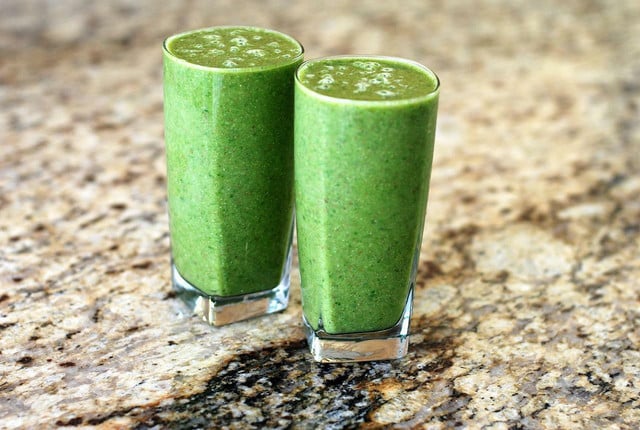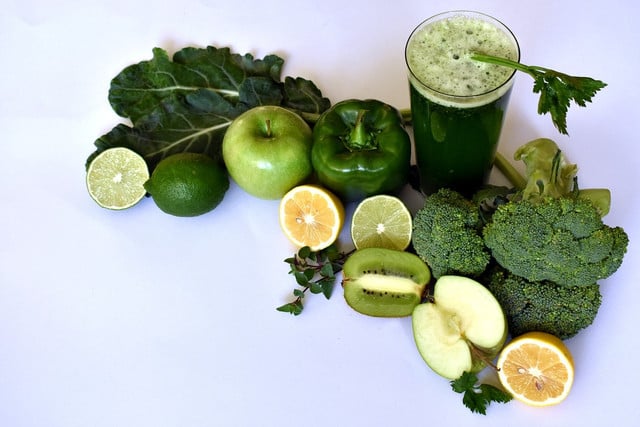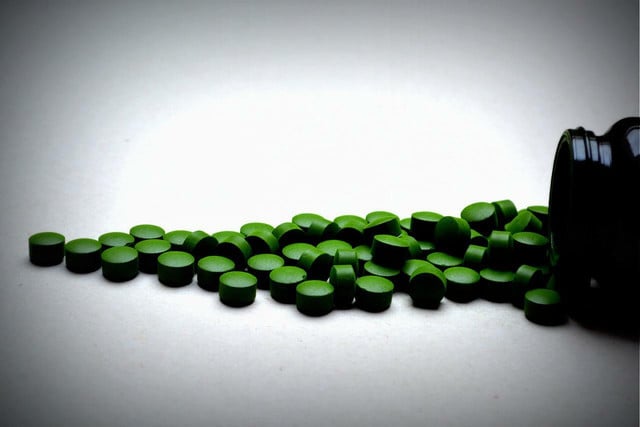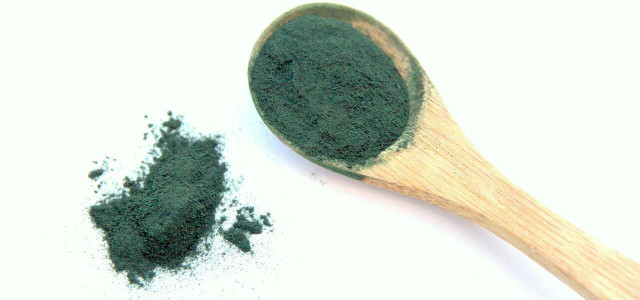The look and taste of chlorella and spirulina are interchangeable, but they are in fact two completely different foods. Keep reading to find out the difference.
Chlorella and spirulina are two of the most popular algae products on the market. They are considered by many to be a superfood, due to the fact that they are rich in antioxidants, vitamins, minerals and carotenoids. Chlorella and spirulina are commonly available today in capsule, tablet or powder form. As a powder form, they are often added to smoothies, or sprinkled on top of salads to add nutritional value. Although they boast many of the same nutritional values and positive health effects, there are some differences between these two types of algae – so we’re going to take a look at chlorella vs. spirulina.
Chlorella vs. Spirulina: Differences

There are some key differences between spirulina and chlorella. Some of these differences include:
- Chlorella is a freshwater green algae native to Japan and Taiwan, whereas spirulina is a freshwater and saltwater blue-green algae.
- In terms of how it is consumed, due to its hard cell wall, chlorella cannot be digested in its pure form by humans, and therefore it has to be taken as a supplement. In comparison, spirulina is more digestible and can technically be eaten as a whole food.
- Compared to spirulina, chlorella is higher in most vitamins and minerals, as well as in fats and calories.
- Spirulina contains approximately 10 percent more protein than chlorella. It is a good supplement to consume as source of vegetarian protein.
- Chlorella is rich in chlorophyll, which is an antioxidant.
- Spirulina contains the protein phycocyanin, which is a rare antioxidant.
- While chlorella contains higher levels of Omega-3 fatty acids compared to spirulina, spirulina contains higher levels of GLA, which is a healthy Omega-6 fatty acid.
Chlorella vs. Spirulina: Similarities



Chlorella and spirulina have many of the same health benefits. The similarities between chlorella and spirulina include:
- Chlorella and spirulina share a lot of the same nutritional properties, including that they are rich in protein, amino acids, and antioxidants, as well as being rich in vitamins and minerals.
- Both products have many of the same health benefits ranging from heart health, gut health, cholesterol management and weight loss. Studies show that chlorella is found to improve the immune system and lowering cholesterol levels, and spirulina helps to reduce cholesterol levels, and balance blood glucose levels.
- Both chlorella and spirulina are very high in antioxidants. They can therefore assist with chelating, which means they can bind to and remove heavy metals that get trapped in our bodies.
- Both products contain all nine essential amino acids.
In terms of their nutritional information, chlorella and spirulina contain similar levels of:
- carbohydrates (7 grams per ounce)
- protein (16 grams per ounce)
Things to Keep in Mind



Most health food stores sell a wide variety of high quality spirulina and chlorella supplements. If you prefer to shop online, you can buy chlorella tablets (eg. from Triquetra on Amazon**) and you can also buy spirulina in capsule form (eg. from Nature’s Way on Amazon**).
As with anything, consuming these chlorella and spirulina can come with some risks. Spirulina has anticoagulant (or blood-thinning) effects, which means you should use it with caution if you have a blood clotting disorder or if you are on blood thinner medication. Another potential risk with consuming spirulina is that depending on where it was grown, it may contain high levels of toxins and heavy metals. Therefore, knowing the source of where the spirulina came from is important when you are buying the product. Some side effects of chlorella include bloating, nausea and fatigue. Both chlorella and spirulina are supplements, and therefore they should be consumed as part of a healthy, balanced diet.
Read more:
- Yellow Broccoli: Is It Safe To Eat?
- Can You Freeze Sauerkraut? 7 Tips for Fresh or Canned
- Sumac Tea: How to Brew & Sumac Benefits
Important Information regarding Health-related Topics.
** Links to retailers marked with ** or underlined orange are partially partner links: If you buy here, you actively support Utopia.org, because we will receive a small part of the sales proceeds. More info.Do you like this post?







